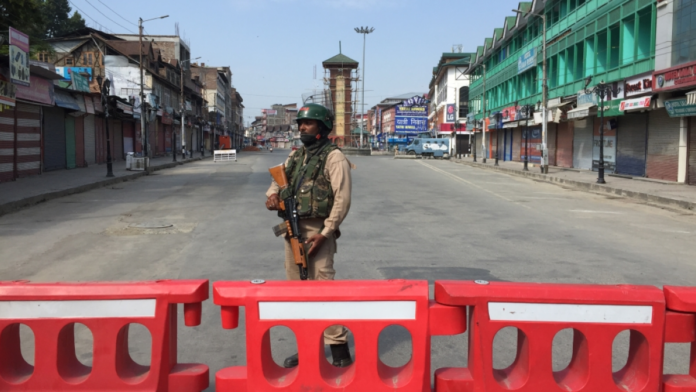For the past 70 years, India has illegally occupied the state of Jammu and Kashmir. Illegal because Indian armies were deployed to occupy the state on October 27, 1947, violating the Partition Plan, which provided for determining Kashmiris’ preferences for joining Pakistan or India.
The state was likely to become a part of Pakistan because it had a Muslim majority and boundaries with what would later become Pakistan. The Maharaja of the State, on the other hand, took no preparations to ascertain the populace’s choices for their political fate. After determining his reasons, the indigenous Kashmiris and tribals voted.
The Maharaja requested assistance from India. It is uncertain whether the Maharaja signed any accession documents. There is reason to believe that Indian troops arrived in Srinagar before the Maharaja publicly ratified the accession. Kashmiris protest against this illegitimate takeover of the state by marking October 27 as Black Day in Pakistan and around the world.
India took the issue to the United Nations in the hope that its perspective would be accepted. Through a series of resolutions, the Security Council also requested a plebiscite to determine the aspirations of the Kashmiri people.
After some initial postponement tactics, India shifted its posture and began referring to the State as an integral part of India. India refuses to cooperate with the UN in order to hold a legal plebiscite.
For the past seven decades, India has consistently ignored the wishes of the international world, as expressed in UN Security Council resolutions, and has also muzzled Kashmiris’ calls for their right to self-determination.
India, on the other hand, has been unable to vanquish the valiant Kashmiris. For three generations, Kashmiris have fought against Indian domination. This alone sends a strong message to the Indian authorities that the people of Kashmir do not want to live under occupation.
The Modi administration lowered the level of illegality three years ago, on August 5, 2019, when it withdrew the occupied Jammu and Kashmir’s special status. The deletion of Articles 370 and 35A of the Indian Constitution sparked outrage among Kashmiris of all political stripes, who saw it as a direct assault on their national identity.
India made steps to silence Kashmiris’ voices by increasing repression on the one side and preparing to conduct a population change plan on the other. Over the last two years, systematic demographic and electoral engineering has been carried out by persuading non-Kashmiris to come to Kashmir and allowing non-Kashmiri residents the right to vote. The objective was straightforward: convert Jammu and Kashmir from a Muslim-majority to a Hindu-majority state.
The efforts in Kashmir are extending the Modi government’s policies in mainland India to construct a Hindu Rashtra (State). India is currently establishing an image as a fascist state, which has harmed its status in the international community and called its commitment to democracy into doubt.
Given that India is home to significant minorities, Hindutva-driven policies could have terrible consequences for the country. The Rashtriya Swayamsevak Sangh (RSS), which believes that everyone in India should either be Hindus or support the Hindu way of life, is the philosophical foundation of Prime Minister Modi’s BJP-led government. If this strategic orientation culminates in the annihilation of the non-Hindu minority and their expulsion from India, it could have serious consequences for regional peace and security. There are two distinct inclinations.
The first is an internal upheaval in India, where Hindutva ideology is spreading fear and worry among the country’s minorities, particularly Muslims. Second, encouraged by the US’s position toward India, the Modi government is now acting like a hegemonic state in South Asia. Of course, Pakistan opposes Indian hegemony because it would disrupt South Asia’s delicate balance of power, with disastrous consequences for the entire region. Other South Asian countries are understandably dissatisfied with India’s domineering actions. As a result, India has strained relations with the bulk of its neighbours.
Have all of these occurrences harmed India’s image as a secular and democratic country? Yes, these radical practises have seriously harmed India’s credibility and called into question the country’s claims to be a secular state. A nation that once prided itself on being democratic and multicultural is now striving to build a Hindu state at the expense of all other minorities.
In view of this catastrophic situation, Pakistanis stand in sympathy with the people of Kashmir and share their determination to reject the illegality imposed on them by arbitrary Indian control since October 27, 1947.
The Director General of the Institute of Strategic Studies in Islamabad is the author of “Diplomatic Footprints.”
originally appeared in The News

